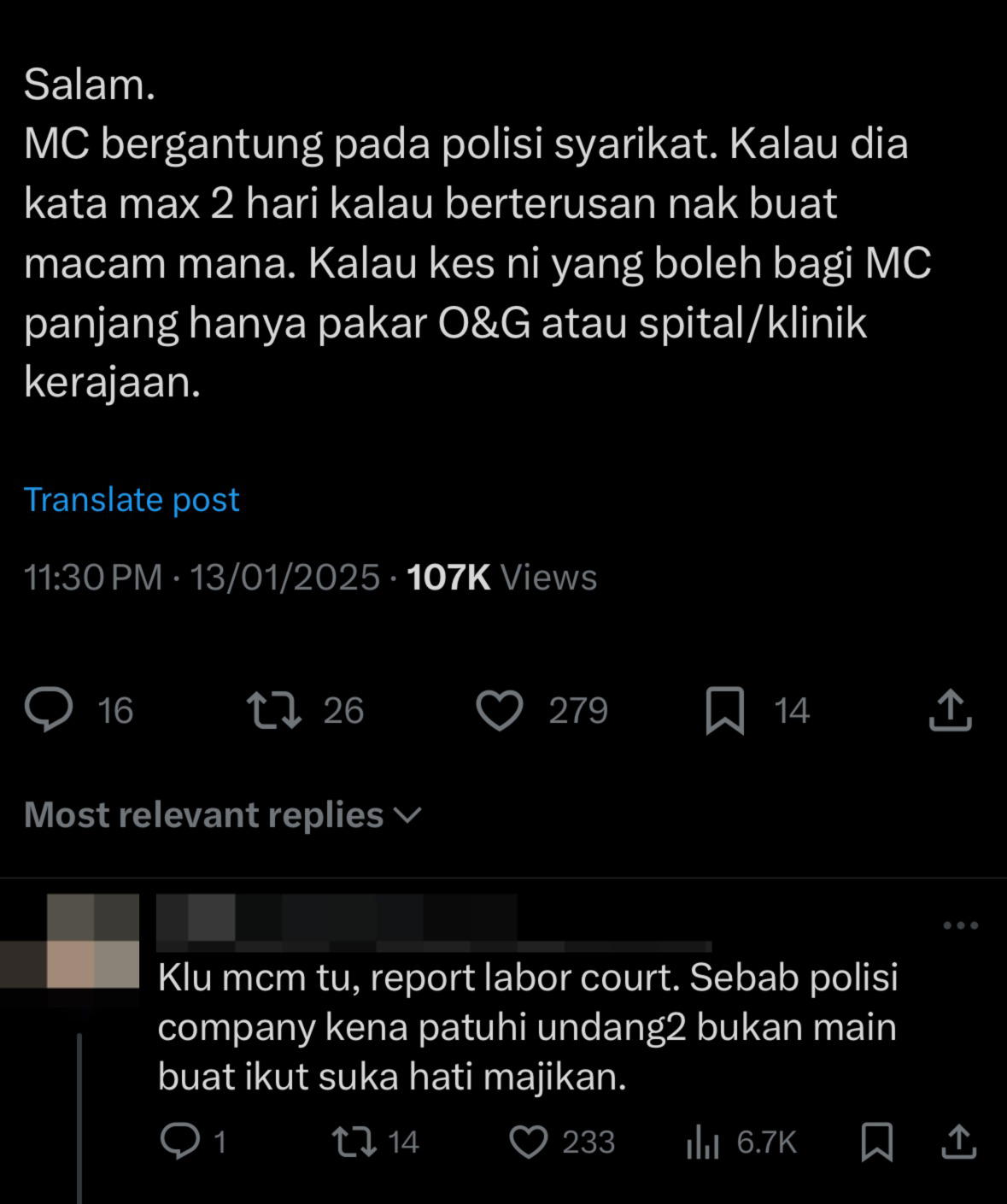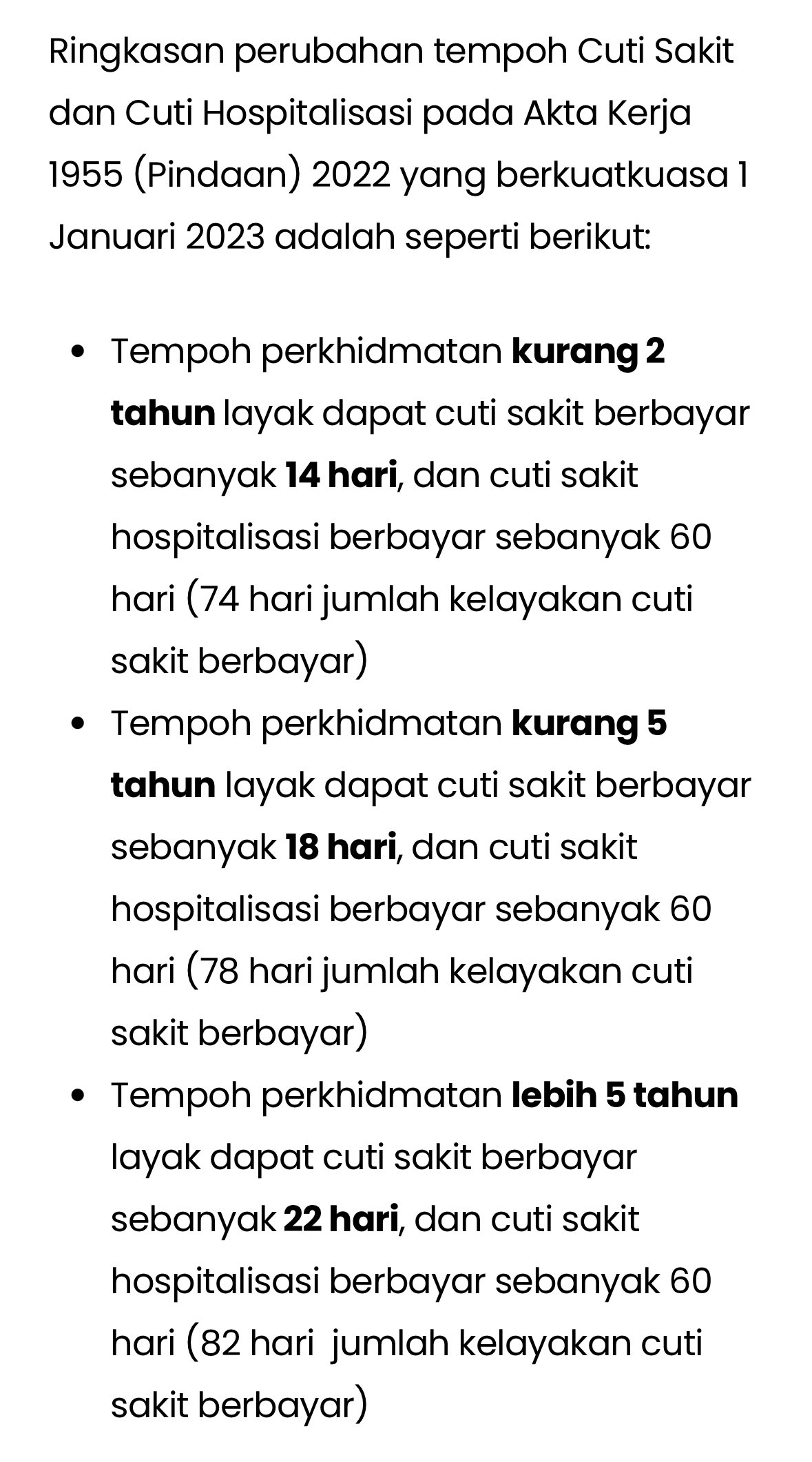A workplace is more than just a space to work; it’s where people spend most of their days, facing personal challenges alongside professional ones.
When life takes a difficult turn, employees often look to their employers for support and understanding.
But what happens when that compassion is missing?
A recent story about a woman who suffered a miscarriage has struck a chord with many, shedding light on how indifferent workplace practices can feel in times of crisis.
A cold response to a heartbreaking loss
In a post shared on X, it was revealed that the woman’s employer didn’t even offer a simple “I’m sorry for your loss” when informed about her miscarriage.
Instead, she was granted just three days of medical leave (MC), even though her doctor had declared her “unfit for duty for 7 days.”
When questioned about the discrepancy, her employer’s response was blunt: “MC is limited to 3 days, the rest is unpaid leave.”

The post later stated: “At the very least, say something like ‘I’m sorry’ or ‘Wishing you a speedy recovery.’”
This response not only lacked compassion but also sparked outrage online, with many calling out the employer’s insensitivity.
Netizens speak out on leave entitlements
The incident quickly turned into a larger conversation about workplace policies regarding miscarriages.
Many were shocked to learn that such situations might not be treated with the same seriousness as other medical emergencies.
“Isn’t a miscarriage considered hospitalisation? It should qualify for 60+ days of leave,” one user wrote.

Another explained, “Only miscarriages after 5 or 7 months of pregnancy are usually treated as hospitalisation. That’s when maternity leave kicks in.”

Some highlighted the inconsistencies in workplace policies, noting that employers often impose their own limits on leave.
“MC depends on the company’s policy. If they cap it at 2 or 3 days, what can you do? Only specialists or government clinics can issue longer MCs for cases like this,” one person shared.
Others advised employees in similar situations to take legal action.
“This should be reported to the labor court. Company policies must align with labor laws, not be dictated by employers’ whims,” another user said.

The law vs. reality: What employees are entitled to
Amid the backlash, netizens pointed to updates in the Employment Act 1955 (Amendment) 2022, which outlines clear entitlements for paid sick leave and hospitalisation leave. As of January 1, 2023, employees are entitled to:
- Less than 2 years of service: 14 days of paid sick leave + 60 days of hospitalisation leave (total: 74 days).
- Less than 5 years of service: 18 days of paid sick leave + 60 days of hospitalisation leave (total: 78 days).
- More than 5 years of service: 22 days of paid sick leave + 60 days of hospitalisation leave (total: 82 days).

While the law provides these protections, the incident highlights how inconsistently these entitlements are applied, leaving employees vulnerable during sensitive moments.



